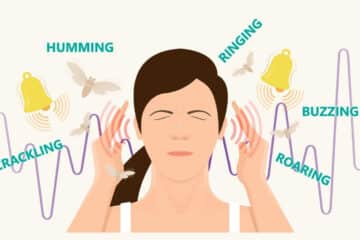MBSR, MBCT, ACT: What are the Differences and which one should you chose?
In their essence MBSR, MBCT and ACT are psychological interventions that have at their core the practice of mindfulness, an accepting way of relating to whatever is happening in the present moment. They differ in the problem they want to address and in the techniques they add on to the mindfulness.
In this article I compare all three modalities, highlighting their similarities and differences.
Definitions
Let’s briefly define the acronyms so that we are all on the same page:
- MBSR: Mindfulness Based Stress reduction
- MBCT: Mindfulness Based Cognitive Therapy
- ACT: Acceptance & Commitment Therapy
MBSR, MBCT, ACT: the origins
As said, all three are modalities that use mindfulness at its core. If you want more detail on what mindfulness exactly is, I highly recommend my overview article on the topic.
But basically, mindfulness is a way of interacting with reality that tries to focus on what is really happening in the present moment. Furthermore, it tries to reduce the overlay that we as humans put on top of our experience.
We get to mindfulness through a series of meditations and mindfulness exercises. There are literally hundreds of these exercises and I share them in this huge 2 part series.
However, all of this was not known in the west in the 70’s. People had been going to the east for some time and discovered the wonderful richness of their meditative practices. A lot of people knew that there was a huge potential for helping people with these techniques, also in the west. Unfortunately, the eastern meditation practices all were based on eastern religions.
Jon Kabat-Zinn, a researcher in molecular biology, knew that if he wanted to bring these techniques to the west, they would need to be secularised. And so he did.
It is this secularised version of mindfulness that is at the basis of all three mindfulness based programs I discuss in this article. Jon Kabat-Zinn used it to develop his 8 week program called MBSR and started from the beginning to take questionnaires before and after the program in order to test the intervention scientifically.
It proved to be a struck of genie. His program worked and he had the data to prove his hypothesis. A wonderful era was born.
What is MBSR?
MBSR (Mindfulness-Based Stress-Reduction), is an eight week program that helps people to overcome stress, depression, pain, and worry. It assists the individual to have a non-judgemental approval of their present experience.
MBSR programs are now offered by various facilities, hospitals, yoga centres and others. The focus of the program is for its participants to experience more joy in life and to help them access an inner strength for healing and getting clarity about their life.
Scientific and medical researchers have strongly recommended that MBSR
What is MBCT?
MBCT (Mindfulness-Based Cognitive-Therapy) is a psychotherapeutic technique which utilizes cognitive behavioural therapy (CBT) methods, with the help of meditative processes. MBCT was originally designed to help treat patients with major depressive disorder and it has since grown in popularity. Research has shown that MBCT and mindfulness-based stress reduction can help to improve mental health and wellbeing
MBCT was designed to avoid and reduce the risk of future episodes of depression in people that have suffered previous mental breakdowns. The therapy helps the patient or/and individual to stop criticising themselves to dissociate from negative thoughts and bad moods, and, to learn to embrace themselves, no matter what
In addition, MBCT has also been medically proven to help cravings, addictions, and people suffering from substance abuse. A study on using the therapy on smokers over a two-week period showed that the level of smoking decreased by about 60% and the subjects gradually lost their craving for smoking
The MBCT program lasts about eight weeks, with a weekly course, which runs for about two hours. The initiative behind the program is based on learning how to focus, pay attention and concentrate fully in each moment.
What is ACT?
ACT was developed to grow greater psychological flexibility and this throughout all areas of one’s life. It mainly focuses on accepting our negative emotions and thoughts without getting involved with them.
Through a series of inquiries, students learn to diffuse and put negativity in its context, which leads to them not having such a grip on us.
In ACT, the participants learn that there are two parts to the self: the one that is thinking and the one that is observing. This interesting mindfulness practice can learn us that whatever is happening, part of us can always remain sereen.
However, there is no formal meditation in ACT. The view held by ACT practitioners is that the skill of mindfulness can also be learned through a series of informal exercises.
MBSR, MBCT and ACT: Differences and similarities
All three programs last for 8-weeks and include formal meditation, psychoeducation, home practices,
In its first incarnation, MBSR was designed as a pure stress reduction technique for patients that had life-threatening diseases and chronic pain.
John Teasdale, Zindel Segal and Mark Williams, hypothesized that the technique could be adapted to also treat patients with depression. The thought that if standard CT (cognitive therapy) techniques would be combined with the insights gained by MBSR, their depressive patients could benefit greatly.
They contacted Kabat Zinn and adapted his eight week course to suit their needs. The major difference they introduced is that in MBCT, there is a focus on using low mood and bad thoughts to teach early on in the program, so that the participants will know, from experience, what these symptoms are and how to reacts/ respond to them.
MBSR, on the other hand, teaches its participants how to
ACT is very similar to MBCT but does not involve the many meditations. A series of exercises
Which one should you chose?
Nowadays, the differences between these form of therapy have faded away. The great practices in each have been incorporated into the other.
So taking a course, in general, is fine. ACT seems less interesting as, in my opinion, meditation is such a fundamental tool in developing mindfulness that omitting it seems strange to me. But I agree that meditation could scare people away.
Obviously, if you think you have a depression, you should go to MBCT or ACT. But, never engage in these practices unless the teacher knows you have a depression and you psychiatrist told you it was OK to engage in these exercises.
Mindfulness is a very powerful catalysator of thoughts and emotions. It can stir up both the positive and the negative. Mindfulness is not designed to make you feel good all the time. It is designed to learn you to cope with whatever happens in the present moment. And that could be positive or negative.
Unfortunately, if you are depressed, there is not a lot of room for more negativity. But, as many studies have shown, mindfulness is an effective treatment for depression. You just need to take care that you do not engage in it without the proper supervision if you are in a bad state of mind.
If you are thinking about getting a good meditation course, I recommend my article on online mindfulness and meditation courses. Here you will find out all about how to chose the best type of course for you (including MBSR!).
Hi, I’m Olivier Devroede and I have been meditating seriously since 2009.
Due to the great benefits I have seen in meditating, I decided to become an MBSR trainer myself and start a blog.






2 Comments
Lemonjooz · at 10:12 am
Hi friend, I syndicated your site as requested and I hope it sends lots of traffic your way!
D · at 12:41 pm
Nice clarification thank you
Comments are closed.